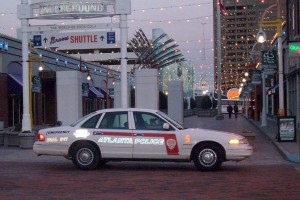DUI laws aren’t just for drunk drivers. Driving under the influence (DUI) can also refer to driving under the influence of drugs. Despite this, the majority of DUI campaigns are targeted at drinking and driving. Though it’s likely more common, cops know that people use drugs and get behind the wheel too. And for that reason, Atlanta-area police are learning how better to identify drugged drivers.
When a police officer suspects someone of drinking and driving, it’s frequently because they have alcohol on their breath or display the well-known signs and symptoms. Then, once they’ve determined they have just cause, they can conduct a breathalyzer test to determine, with a certain level of certainty, whether or not that person is indeed intoxicated. But, identifying someone on drugs is a bit more difficult.
 A new training program for law enforcement officials in Georgia is designed to teach officers what to look for and what those signs may indicate.
A new training program for law enforcement officials in Georgia is designed to teach officers what to look for and what those signs may indicate.
It’s called the drug recognition expert program and, according to the Atlanta Journal Constitution, it can help officers identify use of substances like depressants, stimulants, hallucinogens, narcotics, inhalants, marijuana, and anesthetics. By learning to recognize these seven classifications of drugs, enforcement experts say they can keep roads safer for everyone.
While they may be able to determine someone is acting funny, glassy eyes and confusion is far from proof that someone is under the influence of drugs. Once they believe they have probable cause, they can get a warrant for your blood—the best evidence (in the mind of the prosecutor) for gaining a drugged driving conviction.
It isn’t clear how many people they talked to, but the AJC article indicates officers used volunteers who were admittedly under the influence of drugs, playing the “guess that high” game with people as they came out of clubs and elsewhere.
One volunteer was fidgety and talking fast, with pupils dilated. She tested positive for five different drugs.
Driving while under the influence is likely more dangerous than driving sober. We don’t recommend anyone drive after partying. Period. However, whether you are obliterated or stone sober and accused of being high, you have rights.
If you are accused of drugged or drunk driving, you need someone on your side, a defense lawyer who understands the law and the nuances of your local jurisdiction. Contact our offices today for a free consultation and to see how we might be able to help.